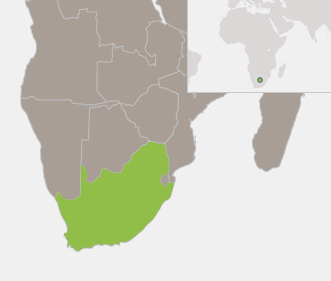Policing in South Africa is once again in the spotlight after a series of incidents which are seen to highlight police brutality and corruption. In recent months the news in South Africa has been dominated by the activities of the South African police service (SAPS), and some have gone as far as to say that policing in South Africa has reached a crisis point.
SAPS was officially established in January 1995 bringing together the apartheid era South African Police (SAP) and the police services of the former homelands. It was a difficult birth, bringing together a number of different police forces who all had different training standards, approaches and attitudes to human rights, racism, discrimination and the use of force. Not only did SAPS need to develop a homogenous approach but it also had to become an accountable, transparent institution which moved on from the police’s reputation for brutality and repression. However, demands to scale up recruitment and political appointments, combined with pressure to tackle rising levels of violent crime, have resulted in a police force rather than a police service. Levels of violent crime have been declining but allegations of police brutality and investigations into police behaviour have not been following suite.
The death of a Mozambican taxi driver, Mido Macia, on February 26th encapsulates the ongoing problems and is one of a series of recent incidents that has left the South African public and international groups clamouring for reform. Macia was arrested by SAPS officers after being accused of parking his minibus taxi on the wrong side of the road. In front of horrified onlookers, he was tied to the back of a police van and dragged behind it before allegedly being beaten to death in his police cell. A video taken by one of the witnesses immediately went viral generating worldwide condemnation of those involved. Eight police officers have been arrested and are currently being investigated for their role in Macia’s death.
Since this case an off duty court interpreter was allegedly assaulted and dragged for 100 metres behind a police vehicle after trying to defend a youngster who was being harassed by two police officers in the North West. The officer has been arrested and an investigation is pending. In the meantime, there is an ongoing inquiry into events surrounding the death of 34 miners in August 2012 who were shot at the Marikana mine during a confrontation with police. This month (March 2013) has also seen the resignation of the case detective in the Oscar Pistorius murder case amidst criticisms that he mixed up crucial facts about the case and the reinstatement of a murder charge against him from 2011.
A recent article in the South African Times stated that “A total of 5090 civil claims were made against the police during 2011-2012, costing the service R131.3-million in payments to state attorneys and R4-million to attorneys in private practice.” These figures combined with the perception amongst the population that corruption in SAPS is rife - two thirds of those surveyed by the Human Sciences research council in 2011 stated that they believed the most corrupt government officials to be in the police - has led to a breakdown in relations between SAPS and the population they are supposed to be serving. Even though the last Independent Complaints Directive report shows that the actual number of deaths in police custody in 2011/12 were 10 percent lower than in 2010/11, 232 people still died in police custody and 488 people died as a result of police action. These numbers are unacceptably high and the use of technology to capture such incidents has brought them to the attention of a wider audience therefore raising their profile.
The actions of the SAPS officers involved in specific cases are by no means justifiable. However, it must also be remembered that SAPS personnel are often put in a difficult position. They are under pressure to reduce crime and violence in South Africa but are not always given the support needed to do this effectively. Many would have come through the ranks at a time when the then National Comissioner Cele’s policy was ‘shoot to kill’. Such a mentality can take time to change, especially when many of the officers involved were previously at the receiving end of police brutality in the apartheid era so such behaviour is almost a norm. In addition policing in South Africa remains a dangerous job. While the number of police killed in the line of duty has decreased 93 police officers were killed in 2011/12 financial year. A demoralised and frustrated police will continue to engage in corruption and use excessive force until something changes.
The question is what’s at the heart of the problem and what needs to change? SAPS leadership has been dominated by political appointees who have had limited experience and/or understanding of what needs to be done to create an efficient, accountable police service. The current National Commissioner, General Riah Phiyega, was preceded by two commissioners (Selebi and Cele) who were both forced out over corruption scandals. Phiyega inherited a demoralised service, with a poorly maintained infrastructure and with the legacy of Cele’s tough talking “shoot to kill” rhetoric lingering on.
Reform needs to focus on: the professionalization of SAPS, especially its leadership and command aspects; on policing being viewed as an important and respected profession; and on transparency and accountability being central to operations. The National Development Plan has recommended that a National Policing Board should be established which would, amongst other things, set standards for recruitment and would ensure that National Commissioners and their deputies are appointed through a competitive process. Implementing these recommendations is key and should be seen by the government as a priority. SAPS needs to become a police service not a police force.
Charlotte Watson is an Associate of the Security Governance Group. She is currently based in South Africa.
Tags: Police Reform, Police Services, SAPS, South Africa





 Visit the Centre for
Visit the Centre for